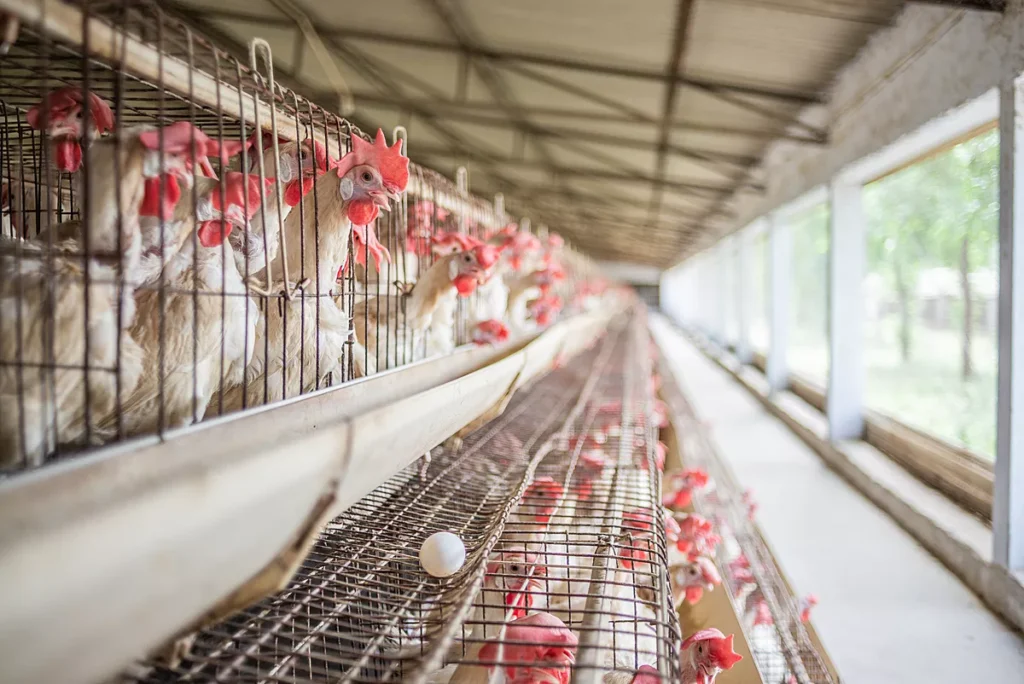The group has investigated illegal cockfighting in the state and found countless operations clustered in the northern part of the state where latest HPAI outbreak occurred
Washington, D.C. — Animal Wellness Action and Center for a Humane Economy warned federal and state authorities about the potential of backyard cockfighting operations to dramatically spread Highly Pathogenic Avian Influenza throughout the United States, the rest of the Americas, and into Asia unless precautions are immediately taken.
Alabama has the weakest anti-cockfighting law in the nation, and that weak law has allowed a massive network of illegal cockfighting operations to take root in the Yellowhammer State. North Alabama, the region that has just been diagnosed with HPAI outbreaks, is perhaps the nation’s hot spot for illegal cockfighting.

Within the last five weeks, the USDA’s Animal Plant and Health Inspection Service reported more than 54 commercial and backyard flocks have been infected by H5N1 (Highly Pathogenic Avian Influenza) nationwide, resulting in the depopulation of 2.5 million birds in October and November. APHIS won’t say how many of these 23 backyard flocks are gamecock operations, but cockfighting flocks are almost certainly part of the matrix of infected populations. A major game bird operation, with nearly 300,000 birds, has been depopulated in north Alabama. These outbreaks are disruptive to commercial poultry operations, cost taxpayers countless millions of dollars, and result in a massive loss of avian life.
“These outbreaks are occurring in the heart of the illegal American cockfighting industry,” said James Keen, D.V.M., Ph.D., and the author of a landmark report on cockfighting and the spread of zoonotic diseases. “We know that widespread movement of fighting birds can spread Highly Pathogenic Avian Influenza throughout the western hemisphere and into Asia given the documented sales and transfers of these fighting birds.”
Animal Wellness Action has investigated the illegal cockfighting industry and noted that Alabama’s law is almost useless, yet state lawmakers and the governor have not taken any action to address the cruelty built into the marrow of cockfighting or the threat to the commercial poultry industry in Alabama agriculture.
“This HPAI outbreak is a wake-up call for many states about the threats posed by an out-of-control and widespread cockfighting industry,” said Wayne Pacelle, president of Animal Wellness Action and the Center for a Humane Economy. “The entire poultry industry should join us in promoting the FIGHT Act to crack down on illegal cockfighting operations dotting the north in the state. Our investigations have uncovered a dangerous level of gamecock breeding farms that ship fighting birds all over the world and threaten to further spread HPAI.”
In total since early 2022, 61.26 million birds have been affected by HPAI, according to the U.S. Department of Agriculture.
Just last summer, for instance, authorities in Marshall County, Ala., arrested three men for illegal cockfighting. In this same county, the presence of HPAI led to nearly 50,000 birds killed this week at a commercial farm. HPAI symptoms include sudden death, diarrhea, low energy and appetite and misshaped eggs.
The report, called “Cockfighting: Playing chicken & gambling with potentially pandemic Avian influenza & virulent Newcastle Disease,” by Jim Keen, DVM, PhD, and Tom Pool, DVM, MPH, show that cockfighting poses a major threat of both HPAI and also the infectious Newcastle Disease.
Cockfighting yields risk disease vectors and reservoirs because fighting birds are reared outdoors under poor biosecurity and widely sold, traded, and deliberately commingled with other birds at fighting derbies under stressful conditions.
Cockfighters engage in particularly risky handling practices, stirring them to fight after they are injured in the pits, even exchanging bodily fluids with the birds. Avian Influenza (AI) and virulent Newcastle Disease (vND) can infect commercially raised poultry, while AI can mutate and threaten human health.
Since topping the 60 million mark for birds affected, this will be the most expensive animal disease outbreak in U.S. history, costing billions of dollars to (so far unsuccessfully) extirpate the virus while inflating consumer prices for eggs and poultry.
Both the U.S. House of Representatives and U.S. Senate have issued the Fighting Inhumane Gambling and High-Risk Trafficking (FIGHT) Act, and the authors hope to include the provision as an amendment to the pending Farm bill. Both pieces of legislation were driven by concerns for the barbarism of animal fighting, other criminal behavior commingled with it, and disease threats to poultry posed by transporting fighting roosters.
The FIGHT Act, amending Section 26 of the Animal Welfare Act, would enhance the enforcement opportunities by banning simulcasting and gambling of animal fighting ventures; halting the shipment of mature roosters (chickens only) shipped through the U.S. mail (it is already illegal to ship dogs through the mail), creating a citizen suit provision after proper notice to federal authorities to allow private right of action against illegal animal fighters, and enhancing forfeiture provisions to include real property for animal fighting crimes.

